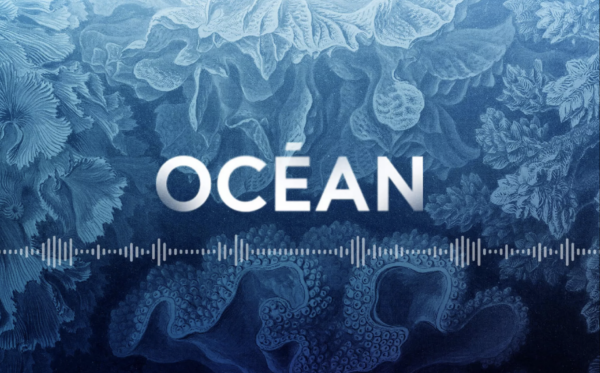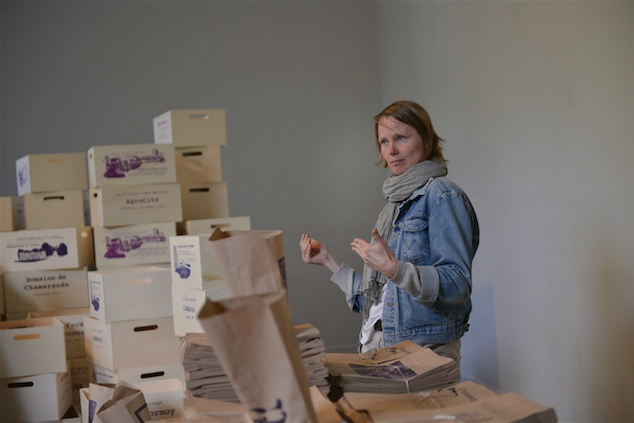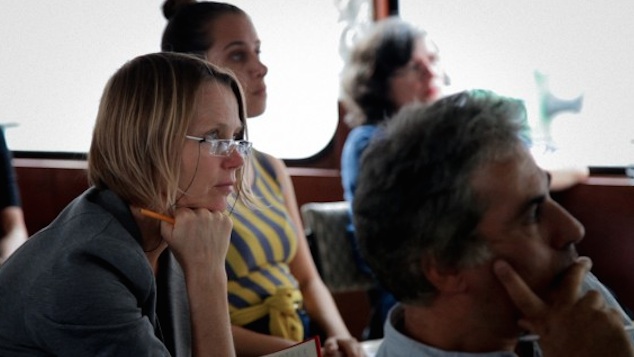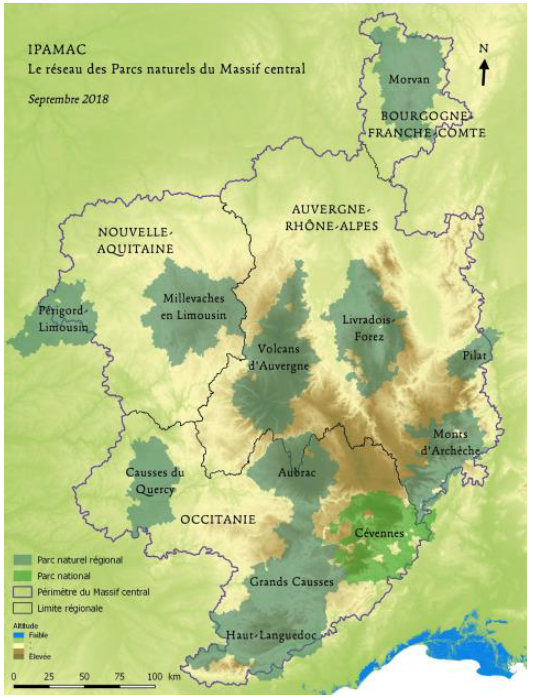
LES ÉPISODES LITTÉRAIRES de la série spéciale Océan du podcast « Pour que nature vive »
La série spéciale « Océan » du podcast Pour que nature vive, produite par le Muséum national d’Histoire naturelle, propose…

Crédit image : Åsa Sonjasdotter, domaine départemental de Chamarande – Exposition « Vivre(s) », 2014.
Née en 1966 en Suède, Åsa Sonjasdotter vit et travaille entre Tromsø (Norvège) et Berlin (Allemagne). L’engagement artistique d’Åsa Sonjasdotter se concentre sur les questions politiques liées à la biodiversité et à la démocratie. Elle étudie les implications culturelles, politiques et économiques de la domestication de la pomme de terre et interroge à travers ce féculent l’histoire du colonialisme, des échanges commerciaux et des normes de régulation européennes.
Elle est également professeur à l’Académie d’art contemporain de Tromso, Norvège. Entre 1996 et 2006, elle a été l’un des membres fondateurs de Women Down the Pub, un groupe d’art et d’actions féministes. Elle a notamment exposé son travail au Kunstverein & Springhornhof Stiftung de Neuenkirchen (Allemagne), au Los Angeles County Museum of Art (Etats-Unis), à la 4e Biennale de Bucarest (Roumanie) ou à la Biennale de Göteborg (Suède). Åsa est actuellement en résidence de création au CENTQUATRE-PARIS et bénéficie du soutien de l’Académie N.A! Fund. En 2015, une exposition monographique lui sera consacrée au Museum für Naturkunde de Berlin.
L’équipe de COAL l’a rencontré pour une interview en 4 questions…
COAL : You won COAL Prize Art & Environment 2014 (theme « Paris ») with your High Diversity project to reinstate the culture of a dozen varieties of potato emerged in the eighteenth and nineteenth centuries and around Paris. Your artistic commitment therefore focuses mainly on policy issues related to biodiversity. Can you tell us more about the relationship between evolution and tuber French political history?
Åsa Sonjasdotter : Potatoes were introduced in France for some of the same (but not the only) reasons that rouse the French revolution. In 1783 there was an eruption of a volcano on Iceland, and its sour ashes spread over central Europe and caused a change in climate that lasted for several years. The wheat didn’t grow properly and there was famine. Potatoes were a new remedy in Europe at this point, and since they could grow in this colder climate it helped reduce the starvation. In the Grand dictionnaire de cuisine, Alexandre Dumas describes how potatoes were grown in Les Jardins de Tulieries in the years after the revolution. All parks and gardens of Paris were used for food production in this time, and also later during the French Commune.
This tells us something about the connection between climate and political changes. Therefore we can learn from the situation around the French revolution, since we today unfortunately stand before even greater challenges concerning exactly the same topics, some few hundred years later.
COAL : The history of colonialism, commercial pressures and European regulatory standards are at the heart of your project. Can you tell us about the varieties of potato that is now prohibited to cultivate and circulate freely?
Å.S : I am interested in the stories behind those varieties that are marginalized through the current EU regulations on cultivated plants. They are mostly bred by peasants, developed for small-scale cultivation in diverse micro climates. This kind of farming is under pressure and threatened to become extinct in Europe today. Though in France there is a strong and well-developed engagement for its revitalization, exemplified by the great work of Receau Semence Paysanne. I believe that the knowledge from these traditional farming systems very soon will become crucial for the necessary re-learning of a sustainable farming and food production.
COAL : As part of the exhibition « Vivre(s) » at Domaine de Chamarande, vegetable domain found through your action function and welcomes its food crops such potatoes revolutionaries today banned because considered too diverse genetically. Could it not happen, in the near future, that these varieties instead get adapted to the methods of industrial food production contemporaries?
Å.S : In EU today, varieties must be Distinct, Uniform and Stable (the so called DUS-standards) in order to be allowed for large scale, professional farming. As you point out, most peasant-bred varieties carry a too diverse genetic composition according to these regulations. They are not bred to suit industrial farming, but peasant farming. Industrial farming is too harsh for these varieties and there would probably be too many problems with damaged harvests for this to make sense. What instead has happened in France, and what I believe is very optimistic, is that several of these varieties has become re-vitalised and are grown by farmers that do not want to enter industrial farming.
COAL : You have identified some possible areas of culture including the Farm Marconville, the Micro-ferme expérimentale AgroCité, the shared gardens of Bois Dormoy, Planet Lila, Cambrai, Trèfle d’Étoile, the grass root movement of ZAD patates, besides the historical garden of Domaine de Chamarande. Preservation of biodiversity, resource management, social cohesion… your approach is fully in sustainable development issues. Can you tell us about your actions, and those to come, in Ile-de-France?
Å.S : I am very glad that these places and organizations were interested in taking part in growing the potato varieties I have researched on. As you point out, farming is not only producing food, but also social bonds, economy, knowledge and awareness concerning conditions for sustenance. Biodiversity is dependent on democracy and vice verse, they are indicators of each others presence or absence. The farmers and gardeners I collaborate with are engaged in the important work of turning the understanding of farming away from a monopolistic and mono cultural approach towards a democratic and diverse activity. The potatoes are grown over the summer, and in the fall there will be a harvest feast and a market and an exhibition at 104 in Paris from October 18 and a week onward. I hope this event can become a celebration of the resilient engagement that these organisations are involved in.
Site internet de l’artiste : www.potatoperspective.org.
La série spéciale « Océan » du podcast Pour que nature vive, produite par le Muséum national d’Histoire naturelle, propose…
Association des Parcs naturels du Massif central lance un appel à candidature.
Et si Paris atteignait les 50°C ? Le Théâtre de l’Odéon anticipe cette éventualité en publiant une étude inédite sur…



